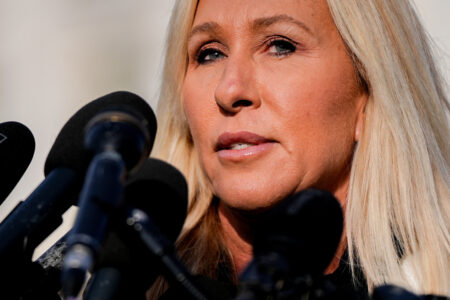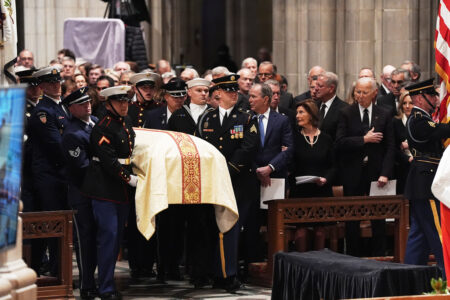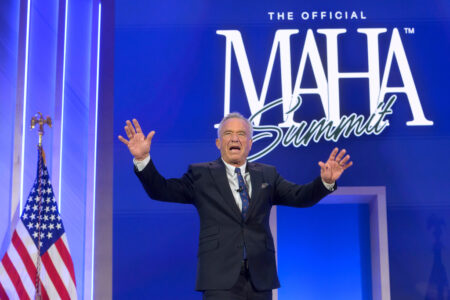As the ‘telephone people’ appear ready to burden us with a new area code mandate, a proud ‘603-er’ makes his case

File image An example of the typical desk or table telephone in the 1940s-50s pre-dial era. Users just picked up the receiver and listened for an operator, who asked for the number you were calling and connected you.
I’m getting the feeling the telephone people somehow found out about my heretofore secret personal crusade to purposefully omit the “603” part when I give someone my phone number.
I bet you’re thinking, “why? What’s the point of that?”
Fair question. It deserves an answer. Which I’ll share, despite the risk of affirming growing speculation that the cheese is beginning to slip off this grizzled old scribe’s cracker.
It’s pretty simple, actually: If your phone number’s area code is the same as the one you’re in at the time, it’s unnecessary to include it. In other words, if I’m in New Hampshire, the person I’m giving my number to should assume the “603” part.
If I have a friend with me and said friend is from, say, Maine, he or she should include the “207” because he or she is currently in “603” territory.

Dean Shalhoup
Longtime reporter, columnist and photographer, is back doing what he does best ñ chronicling the people and history of Nashua. Reaching 40 years with The Telegraph in September, Deanís insights have a large, appreciative following.
Likewise, whenever I’m in Maine, or anywhere else outside of New Hampshire, I gladly include the “603,” because to people in other states, I’m just another guy from away.
So imagine my chagrin when I started seeing news reports a couple of weeks ago that the telephone people are talking about making it mandatory, yes, mandatory, for folks in 35 states and Guam to include their area code – and in some cases, a “1” before it – with every call you make.
Among the affected states are two in New England; one is Vermont. And the other is, yes, our humble Granite State.
According to a sort of how-to thing Verizon posted online, the first stages of this transformation are now getting underway.
Starting Saturday, we should begin including the area code for all local calls – including calls within the same area code. So much for my “it should be assumed” theory.
But the telephone people are kindly giving us a few practice swings: Should we forget and omit the area code, our calls will still be completed.
That grace period lasts until Oct. 24, Verizon tells us. Should we err (or stage an act of defiance) on or after Oct. 24, we will be penalized by being forced to listen to that annoying recording: “We’re sorry, your call cannot be completed as dialed … ”
Apparently, according to news reports and the Verizon how-to, this transformation is rooted in the FCC’s decision to adopt “988” as a new, 3-digit number to reach the National Suicide Prevention and Mental Health Crisis Lifeline, in the same way that calling “911” connects you with emergency services.
I’m not sure how adopting “988” to reach the lifeline affects most of the area codes in those 35 states and Guam, but I’m certainly not going to oppose something that will make it easier, and quicker, for folks in crisis to get the help they need.
There was a time, as many of our elder folks can attest, that people who had telephones in their homes and offices were quite excited to learn they would soon be dialing more digits to call someone – and in some cases, to be dialing phone numbers for the first time.
For me, I’m able to say that I was born in Greater Nashua’s “Dial Era,” but it was close: The Nashua and Merrimack exchanges “went dial” at midnight Sept. 19, 1954, a bit more than four months after I made my grand entrance. (I can’t recall it, I’m just assuming it was a grand entrance).
So I looked back to see how our predecessor in name, The Nashua Telegraph, covered this momentous turning point in the communications industry, and found quite the detailed, step-by-step account of the process.
“13,000 Nashua-Merrimack Telephones Will ‘Go Dial’ at Midnight Tonight,” reads the headline on the Front Page story.
The writer predicted the conversion would happen “ever so much faster than you can say ‘Jack Robinson.'” He or she also no doubt pleased readers with phones by noting that all phone calls within the new Greater Nashua exchanges would no longer be subject to long-distance charges.
This was called “extended local service,” according to the writer, who also mentioned that all Manchester calls to Merrimack would be free going forward.
Happily, long-distance fees have gone the way of the bag phone. Although looking at one’s cell phone bill these days may make one long for the good old days of paying one or two bucks to talk to Grandma on Christmas.
Who remembers those seemingly random words associated with phone numbers? They called them “telephonic names,” but how they were selected, and assigned, is something to research another day.
What we know is that the first two letters of these telephonic names corresponded with the first two digits of seven-digit phone numbers. For instance, Nashua’s (and parts of Hudson’s) telephonic name was “Tuxedo,” often written “TUxedo.” The “TU” is numerically “88,” and the first assigned dial telephone numbers in Nashua and most of Hudson began with “882,” “883,” and “889.”
Years later of course “881,” “886,” and a bunch of others came along as the area grew, and grew fast.
I think it was 1967-68 or so that phone numbers for homes and businesses in the southern part of Nashua, roughly south of East Dunstable Road, were assigned numbers beginning with “888.”
I remember the “888” dial tone, and ringtone, sounding slightly different from those of us north of East Dunstable Road.
Merrimack’s telephonic name was “HArrison,” the “HA” for “42,” while what they called “South Hudson” was “MIssion,” for “64,” which was probably absorbed by Tyngsborough, which was then “NIagara,” the “NI” being the same “64” as Hudson’s “MIssion.”
A busy, tired but delighted Alonzo Ward, the manager of Nashua’s Central Telephone offices, which stood at the corner of Factory and Clay streets, spoke often with the Telegraph once the successful switchover had taken place.
He assured Nashuans that “if anyone, for any reason, is experiencing difficulty” with their phone or adapting to dial, they would receive immediate assistance by dialing “operator.”
Ward at times waxed philosophical, predicting that at first, “a few people will long for ‘the good old days’ of the pre-dial system.” But in just a matter of hours, he added, experience has shown that “customers will take to the system like a duck to water.”
Taking it a step further, Ward compared advances in phone service to the evolution of the automobile.
“Some people swore they’d never drive an automobile when the gear shifting apparatus was brought up from the floor (of the auto) and put up near the steering wheel … and again, when automatic transmissions were offered them.
“But now they would be lost without these improvements. I can assure everybody that the same holds true for the dial system.”
Dean Shalhoup’s column appears weekly in The Sunday Telegraph. He may be reached at 594-1256 or dshalhoup@nashuatelegraph.com.
- File image An example of the typical desk or table telephone in the 1940s-50s pre-dial era. Users just picked up the receiver and listened for an operator, who asked for the number you were calling and connected you.
-
Dean Shalhoup
Longtime reporter, columnist and photographer, is back doing what he does best ñ chronicling the people and history of Nashua. Reaching 40 years with The Telegraph in September, Deanís insights have a large, appreciative following.





